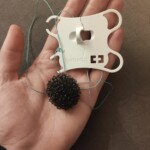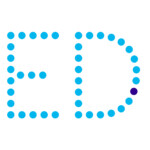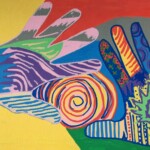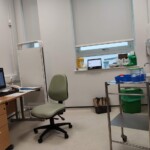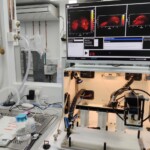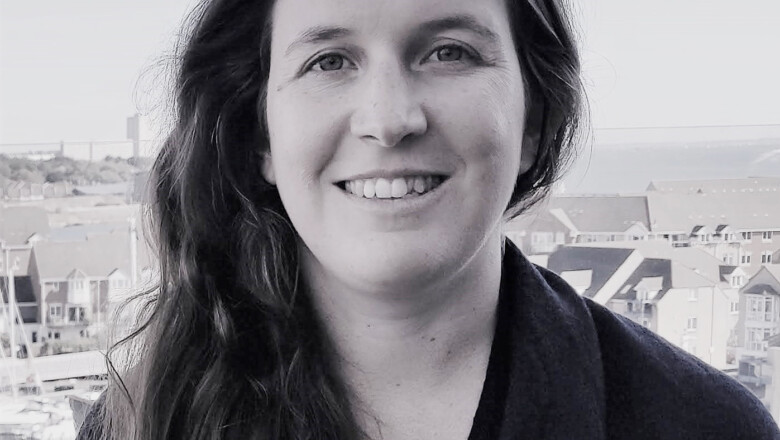- Philomathia Fellowship
- Publications
- Dissemination activities (selected)
Philomathia Fellowship
Ignacia’s Philomathia fellowship enabled her to embark upon ANTHCED: an anthropological study on the early detection of cancer. The study aimed to unpack the diverse ways stakeholders engage with early cancer detection technologies by drawing on long-term involvement in pre-clinical laboratories, research encounters, clinical spaces, and diverse communities in the UK and the USA.
Throughout this project, it was central to recover the circumstances in which stakeholders such as scientists, health professionals, research participants and patients are situated. This impetus took Ignacia in four main directions during the fellowship:
LEARNING TO SEE: As an ethnographer, Ignacia joined five scientific laboratories and dissemination meetings to understand how STEM researchers develop new early detection technologies – blood tests, computer algorithms, new sampling devices, immunological assays – learning to see cancer before any symptoms appear.
NEGOTIATING VALUES: Tracking how some of the most promising technologies developed in laboratories travel to clinical spaces and to what effects, Ignacia also collaborated with a multidisciplinary clinical team running first in human clinical trials in cancer early detection.
ELUSIVE RISKS: The current picture of cancer prevention suggests that over a third of the eligible population in England does not engage in cancer risk detection measures such as population screening programmes.This co-led CRUK pump-priming grant (2019-2021) explored the social worlds of ‘structurally vulnerable’ communities in Cambridgeshire and how their experiences of care and risk inform their practices to prevent disease and live well.
REPRESENT: Ignacia was the Lead Investigator of REPRESENT: A Community Engagement Roadmap to Improve Participant Representation in Cancer Research Early Detection. Funded by the International Alliance for Cancer Early Detection (2021-2022), Ignacia worked alongside a 12-strong multidisciplinary team across four universities. We asked how to include everyone and build trust with ‘underserved’ communities in Manchester (UK) and Oregon (USA), generating practical recommendations for clinical research infrastructures in a consensus-building workshop. You can learn more here: https://anthced.com/represent/
Publications
Frederike Brockhoven & Maya Raphael, Jessica Currier, Christina Jäderholm, Perveez Mody, Jackilen Shannon, Bella Starling, Hannah Turner-Uaandja, Nora Pashayan & Ignacia Arteaga. REPRESENT recommendations: improving inclusion and trust in cancer early detection research. British Journal of Cancer (2023). https://doi.org/10.1038/s41416-023-02414-8
Currier, J., Arteaga, I., Turner-Uaandja, H., Starling, B., Pashayan, N., Jaderholm, C., Campusano, C., Shannon, J. (In Press) REPRESENT: A Community Engagement Roadmap to Improve Participant Representation in Cancer Early Detection Research: an Oregon Case Study. Frontiers in Public Health 11. DOI: 10.3389/fpubh.2023.1110543
Fagan Robinson, K. & I. Arteaga. (2023). ‘Hard-to-Reach’? Meanings at the Margins of Care and Risk in Cancer Research. In Bennet, L., Manderson, L., Spagnoletti, B. (Eds) Cancer Ethnographies: Inequalities, Embodiments and Interventions in Global Perspective. London: UCL Press.
Arteaga, I. & Llewellyn, H. (2022) Cultivating ethnographic sensibilities in ethnographies of dying people. Ethos, 50: 353-371. https://doi.org/10.1111/etho.12357
Arteaga, I., S. Gibbon and A. Lanceley. (2022) Therapeutic Values in Cancer Care. (Introduction to Special Issue: “Transformations in Cancer Care: Values, Limits, Subjectivities”). Medical Anthropology, 41:2, 121-128 DOI: https://doi.org/10.1080/01459740.2021.2021902
Arteaga, I. (2022[2021]) Game-changing? Promise and efficacy of novel cancer treatments. Medical Anthropology, 41:2, 156-168. DOI: 10.1080/01459740.2020.1860960
Arteaga, I. (2022[2020]) Emotion work in colorectal cancer treatments. Medical Anthropology, 41:2, 197-209. DOI: 10.1080/01459740.2020.1808976
Arteaga, I. (2021) Learning to see cancer in early detection research. Medicine Anthropology Theory, 8(2), 1-25. Special issue ‘Medical Testing, Diagnosis and Value’ edited by A. Street, A. Kelly and M. Taylor. DOI: https://doi.org/10.17157/mat.8.2.5108
Lemos-Dekker, N., van Dam, A., Arteaga, I., Llewellyn, H., Karathanasis, P., Bryant, R. (2021). Navigating chronic crisis. In M. Boletsi, N. Lemos-Dekker, K. Mika, K. Robbe (Eds.) Untimely Crises: Chronotopes and Critique. London, New York and Shanghai: Palgrave Macmillan.
Greco C, Arteaga I, Fabian-Therond C, Llewellyn H, Swallow J, Viney W. (2021). Cancer, COVID-19, and the need for critique [version 2; peer review: 2 approved]. Wellcome Open Research, 5:280 (https://doi.org/10.12688/wellcomeopenres.16404.2)
Arteaga, I. (2019) From attitudes to materialities: Understanding bowel control for colorectal cancer patients in London. Medical Materialities. Parkhurst, A. and Carrol, T. (Eds.) London: Routledge.
Risør, I. & Arteaga, I. (2018) Disjunctive belongings and the utopia of intimacy: violence, love and friendship among poor urban youth in neoliberal Chile, Identities, 25:2, 228 -244, DOI: 10.1080/1070289X.2017.1400278
ONLINE PUBLICATIONS
Arteaga, I. & Greco, C.. (2021). The need for multiple perspectives: looking at cancer care beyond the clinical lens. Wellcome Open Research blog. Available at: https://blog.wellcomeopenresearch.org/2021/03/11/the-need-for-multiple-perspectives-looking-at-cancer-care-beyond-the-clinical-lens/
Arteaga, I. & Risør, H. (2021).The Fishtail model: Utopia, overdetermination and ethnographic writing in Chile. Identities blog. Available at: https://www.identitiesjournal.com/blog-collection/utopia-overdetermination-and-ethnographic-writing-in-chile
Arteaga, I., Robinson, K. Macdonald, M. (2020) How to Track and Trace: Look for the super-locals. BMJ Opinion. Available at: https://blogs.bmj.com/bmj/2020/09/10/covid-19-test-and-trace-look-for-the-super-locals-to-access-hard-to-reach-groups/
Arteaga, I., Greco, C., Llewellyn, H., Ross, E. & Swallow, J. (2019) (Dis)continuities in cancer care: An ethnographic approximation to practices of disease stratification. Somatosphere: Science, Medicine and Anthropology. Available at: http://somatosphere.net/2019/discontinuities-in-cancer-care-an-ethnographic-approximation-to-practices-of-disease-stratification.html/
BOOK REVIEWS
Cancer Biomarkers: Ethics, Economics, and Society, edited by Blanchard, A. and Strand, R. Journal for the Sociology of Health &Illness Vol. 41 (6): 1207-1208. Available at: https://doi.org/10.1111/1467-9566.12895
Metrics: What counts as Global Health, edited by Adams, V. Medicine Anthropology Theory 5 (4): 121–124. Available at: doi.org/10.17157/mat.5.4.602
An anthropology of lying: Information in the doctor-patient relationship, by Sylvie Fainzang. Journal of the Royal Anthropological Institute 23 (2): 426- 427. Available at: https://doi.org/10.1111/1467-9655.12620
Dissemination activities (selected)
REPRESENT RECOMMENDATIONS TO IMPROVE INCLUSION AND TRUST IN CANCER EARLY DETECTION RESEARCH
Link to the open-access publication: https://www.nature.com/articles/s41416-023-02414-8
Authors: Frederike Brockhoven & Maya Raphael, Jessica Currier, Christina Jäderholm, Perveez Mody, Jackilen Shannon, Bella Starling, Hannah Turner-Uaandja, Nora Pashayan & Ignacia Arteaga
Below, you can watch four videos introducing the project and illustrating the key elements of these recommendations across three larger areas of practice.
- REPRESENT RECOMMENDATIONS (1): Improving participation in cancer early detection research
- REPRESENT RECOMMENDATIONS (2): Making clinical research mutually beneficial
- REPRESENT RECOMMENDATIONS (3): Outreach and recruitment practices
- REPRESENT RECOMMENDATIONS (4): Communication and support
Acknowledgements: This work was supported by the International Alliance for Cancer Early Detection, an alliance between Cancer Research UK [EICEDAAP\100011], Canary Center at Stanford University, the University of Cambridge, OHSU Knight Cancer Institute, University College London and the University of Manchester. The Philomathia Foundation and Robinson College, Cambridge supported Ignacia Arteaga’s work and made possible the production of these videos.
SELECTED PRESENTATIONS, INVITED LECTURES, AND ORGANISATION OF EVENTS
9 Nov 2022 — On biomedical affect. Short paper presented at the roundtable Un/Settling Objects Of Knowledge In The Biomedical Sciences at the American Anthropological Association Annual Conference.
9 Dec 2022 — Recommendations to improve inclusion and trustworthiness in Cancer Early Detection Research. Paper presented with Professor Jackie Shannon at the Patient Advocacy Symposium organised by the International Alliance for Early Cancer Detection.
30 Sep 2022— Cancer from another lens. Invited lecture for the International Alliance for Early Cancer Detection PhD training programme.
17 – 21 June 2022 — Consensus building workshop. As part of the ongoing REPRESENT collaboration, I supported the UCL team in the organisation of this 3-day online workshop bringing together researchers, health professionals, community engagement practitioners and public contributors to discuss recommendations that address inclusion, diversity and trust-building in early cancer detection research.
22 April 2022 — Justice for Whom? Exploring Notions of Justice in the Context of Participant Representation in Cancer Research Early Detection. Oral paper co-presented with Maya Raphael at the British Sociological Association Virtual Annual Conference Building Equality and Justice Now.
28-29 April 2022 — Elusive risks interactive session. Invited session co-organised with Kelly Fagan Robinson for the British Psychosocial Oncology Society virtual conference ‘Equality, Diversity and Inclusion in Psychosocial Oncology’.
30 March 2022 — Achieving reassurance: An ethnographic study on the implementation of a cancer screening test. Invited panel speaker at the UK Society of Behavioural 17th Medicine annual scientific meeting. Panel on ‘Using new technologies to speed up progress in early diagnosis of cancer: exploring the role of behavioural science’, chaired by Professor Jo Waller.
18-21 January 2022 — Examining Collaborations in Molecular Research Infrastructures panel, at the Royal Anthropological Institute’s Mobilising Methods in Medical Anthropology online conference. Co-organised with Henry Llewellyn (University College London), Libuše Hannah Veprek (LMU Munich) and Rebecca Carlson (Toyo University).
27th September to 11th October 2021 — Co-curator of Images of Risk and Care exhibition at the Cambridge Central Library based on the CRUK-funded project “Elusive Risks” and supported by various community organisations.
11th of October 2021 — Conversation with members of Grid Oncology and Cartographies of Malignancy research groups at Kings College London, based on my article Emotion work during colorectal cancer treatments.
16th of September 2021 — Co-organiser of CRUK-funded Elusive Risks roundtable, bringing together academics, cancer researchers and community experts at Robinson College, Cambridge UK. Co-organised with Kelly Fagan Robinson.
9th of August 2021 — Chair of the panel: Introduction to Health Inequalities. International Alliance for Cancer Early Detection Virtual Summer School.: Precision Early Detection for All. Manchester, UK.
15th of July 2021 — From another lens: An anthropological perspective on cancer and care in the UK. CRUK Cambridge Centre Lecture Series in Cancer Biology and Medicine. Cambridge, UK.
May 2021 — Disentangling hype from hope in cancer care: When biomarker discovery and novel forms of patient work meet. Senior seminar, Department of Social Anthropology, University of Cambridge. Read the full paper here.
March 2021 — Aligning temporalities: Navigating the challenges of translating cancer signals into technologies for the early detection of cancer. Chronic Living Conference. Copenhagen, Denmark. Read the full paper here.
March 2021 — Chronic Living panel “Living with cancer: between the promises of innovations and the experience of chronicity”. University of Copenhagen, Denmark. Co-organised with Cinzia Greco and Nils Graeber.
June 2019 — Outliers in cancer research: who are the hard-to-reach and for whom? Paper presented with Kelly Fagan Robinson at the ASA conference. Norwich, UK. The book chapter “Meanings at the Margins of Cancer Research”, co-authored with Kelly Fagan Robinson is forthcoming at UCL Press.
April 2019 — Multidisciplinary workshop ‘Ethnographies of disease stratification: Understanding novel clinical practices and their social consequences in contemporary cancer care’, Cambridge, UK. Co-organised with Julia Swallow, Emily Ross, Cinzia Greco, and Henry Llewellyn. Read the final report here.
September 2018 — Is Pembrolizumab a game-changer in cancer care? Possibility and frailty of world-making projects. Wellcome Trust networking workshop ‘Remaking Cancer’. Manchester, UK.
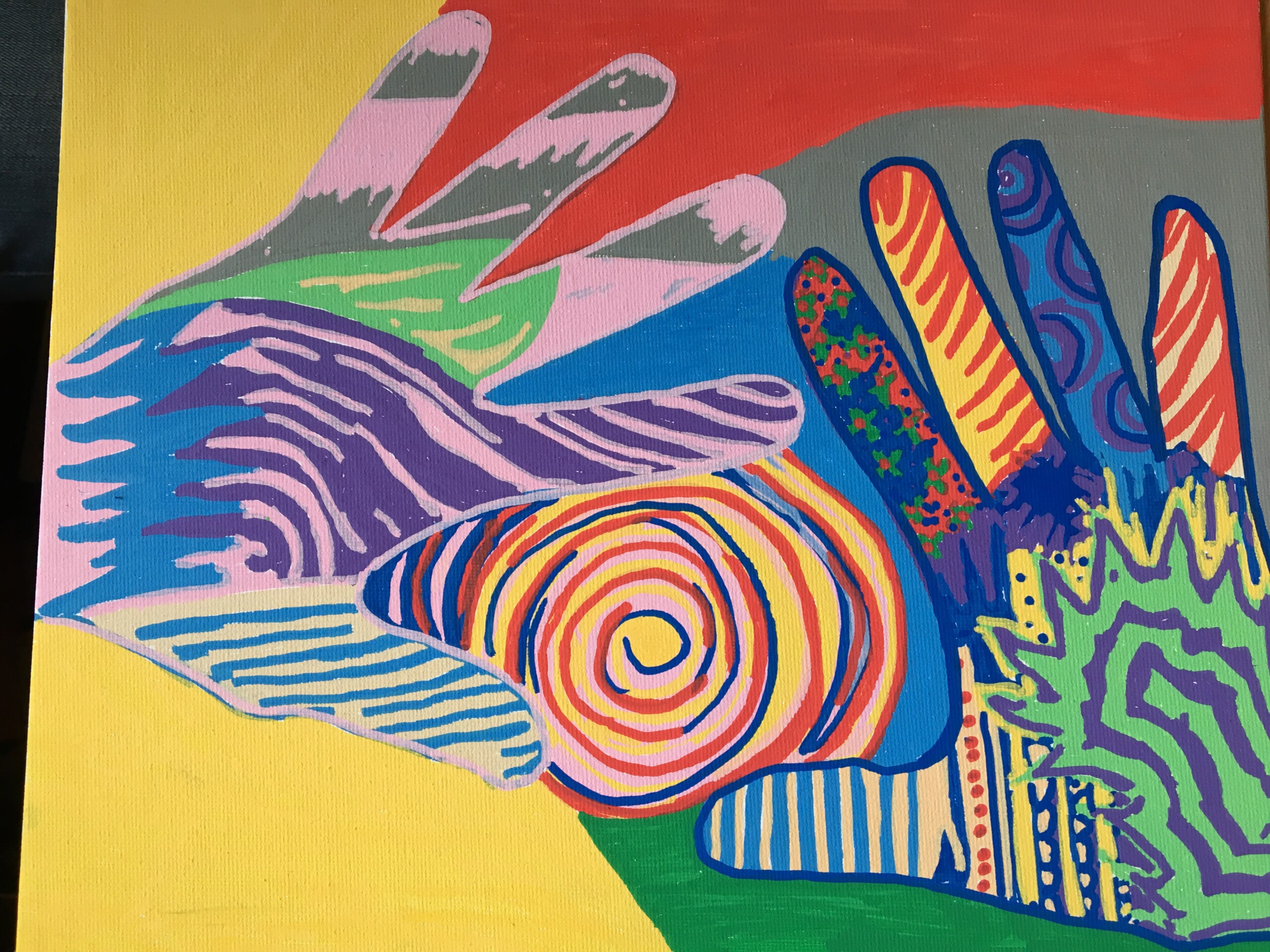
- December 2020 — Ethnographic Approaches to Health Inequalities
- March 2021 — Personalisation Practices in Cancer Research
- January 2021 — Digital Diagnostic Technologies
- May 2021 — Practices of (Non) Engagement With Health Services
- April 2021 — Ethnographic Approaches to ‘Non-Normal Bodies’


